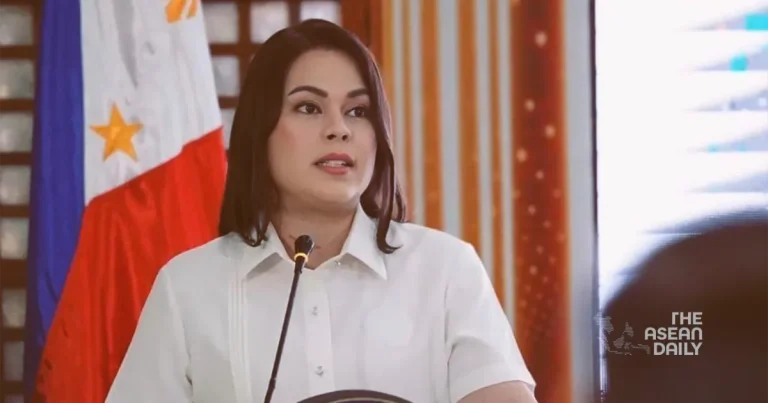9-8-2024 (MANILA) Vice President Sara Duterte has once again found herself at the centre of political controversy, following a pointed statement that appears to take aim at the current administration’s approach to flood control projects. In a message laden with thinly veiled criticism, Duterte asserted that “leaders should not be motivated by cash, cocaine or champagne”, igniting speculation about growing tensions within the corridors of power.
This latest salvo, published on Duterte’s personal Facebook page and shared by the Office of the Vice President, marks the second instance in which she has employed the term “cocaine” in a public statement. The Vice President’s choice of words has raised eyebrows, particularly given the recent circulation of a video purportedly showing President Ferdinand Marcos Jr inhaling a white substance – a claim swiftly debunked by the Philippine National Police as fabricated.
Duterte’s statement, while not explicitly naming the President, implied a lack of commitment to funding flood infrastructure in Davao City, her family’s political stronghold. “Perhaps they now want to fund the infrastructure projects that align with the master plan? Or perhaps there are still doubts about it because the mayor is a Duterte, and they would rather just tear it down?” she remarked, referencing her brother, Sebastian Duterte, the current mayor of Davao City.
The Vice President’s comments have been interpreted as a direct challenge to the Marcos administration’s priorities and decision-making processes. Her assertion that leaders “should not be made to hold champagne glasses” appears to be a thinly disguised reference to a viral video featuring First Lady Liza Araneta-Marcos drinking from Senate President Chiz Escudero’s wine glass at a public event in June.
This latest episode underscores the growing rift between Duterte and her former ally and running mate in the 2022 election, President Marcos Jr. The timing of these remarks, coming shortly after Duterte’s resignation from the president’s Cabinet, suggests a deepening divide within the upper echelons of Philippine politics.




